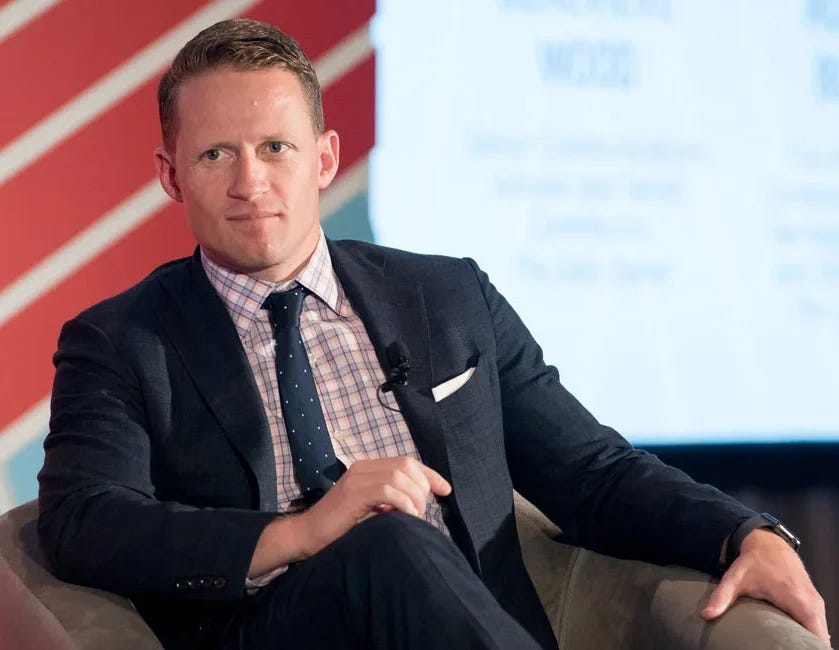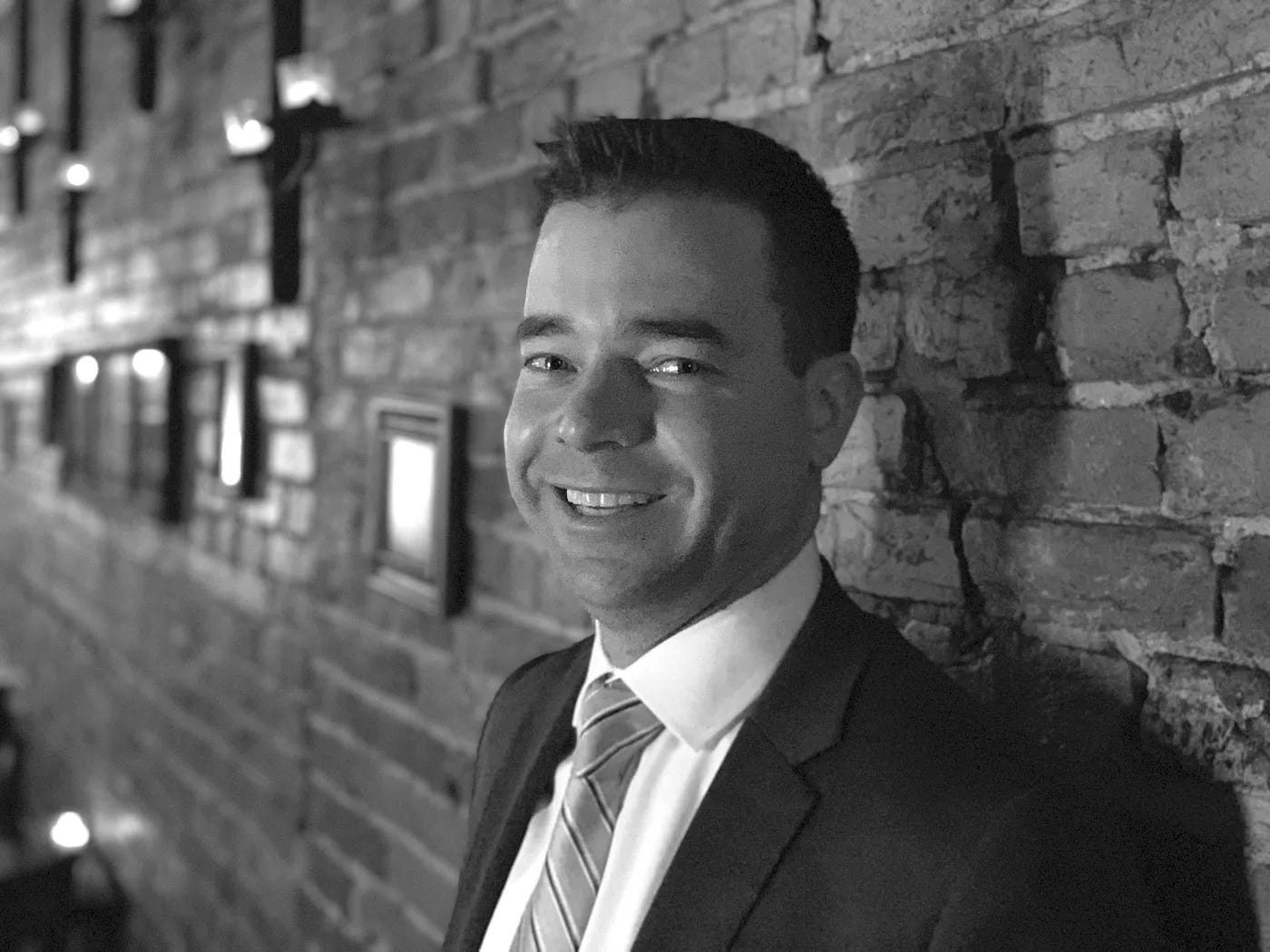Speaker system
FreeCon 2025 offers range of presenters and perspectives on America’s future
Where will U.S. Rep. Dan Crenshaw, Dispatch editor and Los Angeles Times columnist Jonah Goldberg, pollster and New York Times columnist Kristen Soltis Anderson, and American Enterprise Institute scholar Charles Murray be on February 24?
At FreeCon 2025, of course! This inaugural event of the Freedom Conservatism movement will be held at the National Press Club in Washington, D.C.
In past newsletters, we told you about other speakers appearing at the conference, including Hoover Institution economist John Cochrane, Independent Women’s Forum author Carrie Sheffield, Brian Blase of the Paragon Health Institute, and O.J. Oleka of the State Financial Officers Foundation.
For this initial one-day conference on Freedom Conservatism, we chose presenters with a wide variety of backgrounds, roles, and institutional affiliations.
After all, FreeCons and our allies comprise a broad swath of the American Right. Some are emerging leaders, others seasoned ones. We represent different generations, regions, professions, and schools of thought.
What we share is a strong belief that American greatness requires American freedom — and that the best way to respond to the rise of the nationalist-populist Right is to offer superior policy solutions and political strategies based on America’s founding principles.
Today we profile additional speakers at FreeCon 2025. To review the schedule and register for the event, click here.
Fundamental principle
Tim Chapman is president at Advancing American Freedom, a public policy advocacy organization founded by Vice President Mike Pence. He’s also a featured speaker at the Freedom Conservatism Conference on Feb. 24 in Washington.
Chapman has served as a principal at P2 Public Affairs, executive director of Heritage Action, chief of staff at the Heritage Foundation, and adviser and staffer to former U.S. senators Jim DeMint, Don Nickles, and Asa Hutchinson.
Also a former executive director at Stand for America, an advocacy organization founded by Ambassador Nikki Haley, Chapman has appeared in numerous media outlets and crafted many messaging campaigns resulting in policy victories.
In a recent Washington Times piece, he praised the Trump administration’s actions against DEI as a win for American safety, strength, and excellence.
“These tyrannical programs target the heart of what has made this country great for centuries: the freedom to use one’s God-given talents to pursue a life of happiness regardless of background,” Chapman wrote.
“This fundamental principle has made America responsible for some of humanity’s greatest achievements in music, science, art, medicine, literature, engineering, and so much more, improving our quality of life and enriching our society.”
By contrast, he continued, “DEI seeks to manufacture cheap, forced equality, sacrificing excellence, honor, worthiness and the freedom of choice in its wake. Without such virtues and individual liberty, enforced equality is cheap and meaningless.”
Spiraling crisis
Stephanie Slade is a senior editor at Reason, a fellow in liberal studies at the Acton Institute, and a featured speaker at the inaugural Freedom Conservatism Conference on Feb. 24 in Washington.
A former speechwriter and pollster, Slade has written for America magazine, The New York Times, U.S. News & World Report, the Online Library of Liberty, among other outlets. She is currently working on a book about fusionism.
Slade serves as a member of the board of advisors for Young Voices and has been a guest on a variety of podcasts, including Jonah Goldberg’s “The Remnant” and The New York Times’ “Ezra Klein Show.”
In a Reason piece published last year, she compared the French Revolution’s cycle of escalating extremism to current trends in political rhetoric and activism.
“Each step of the way,” Slade wrote, the Jacobins, Girondins, and other French revolutionaries “felt they had every excuse and perhaps no choice but to ignore the rules of the game that might otherwise have reined in the excesses of the day.
“Yet at every stage, a breach on one side provoked an even more extreme response on the other, and the crisis spiraled further.”
In American politics today, she concluded, Democrats and Republicans “jostle for temporary advantage, certain of the righteousness of their respective crusades, while trust in the institutions that make peaceful coexistence possible drains away.”
Trade neutral
Dominic Pino is the Thomas L. Rhodes Journalism Fellow at National Review Institute, a regular writer for NRO and its “Capital Matters” section, and a featured speaker at the inaugural Freedom Conservatism Conference on Feb. 24 in Washington.
Host of the “Econception” podcast for the American Institute for Economic Research, Pino is a former MA Fellow at George Mason University’s Mercatus Center and has written for such publications as the Wall Street Journal, EconLog, and Washington Free Beacon.
In recent NRO posts, he rebutted the notion that the value-added taxes commonly imposed in Europe act as protectionist tariffs against American imports.
“A VAT is a consumption tax levied on the value added at each stage of production,” Pino wrote. “It is similar to a sales tax, except it is better designed to avoid double taxation.”
Summarizing a 2021 study of VATs and trade flows, he concluded that “in addition to being trade-neutral in theory, the evidence suggests VATs are trade-neutral in practice.”
Courage to help kids
Dan Lips is a senior fellow at the Foundation for Research on Equal Opportunity (FREOPP), a FreeCon signatory, and a featured speaker at the Freedom Conservatism Conference on Feb. 24 in Washington.
A former researcher at the Cato Institute and Heritage Foundation, Lips is also a senior fellow at the Foundation for American Innovation and led the Arizona Dream Foundation, a nonprofit focused on expanding educational choices for children in the Copper State.
In a recent piece for FREOPP, he argued that the latest National Assessment of Educational Progress exams in reading and math revealed the disastrous performance of public schools — and the need for greater choice and competition in American education.
Specifically, Lips urged Congress to give states more authority to employ federal dollars in school-choice programs. He also pointed to the District of Columbia’s Opportunity Scholarships as a model to emulate.
The program “has helped more than ten thousand children, thanks to the bipartisan coalition on Capitol Hill and in the D.C. government,” he wrote.
“America’s disadvantaged children need lawmakers on both sides of the aisle to once again have the courage to do the right thing to help kids.”
In the mix
• In National Review, FreeCon signatory Vance Ginn outlined a bold pro-growth agenda for Washington policymakers than includes tax cuts, deregulation, fiscal restraint, and free-trade agreements.
“The November 2024 election wasn’t just about rejecting Bidenomics,” wrote Vance, who served in the White House during President Trump’s first term. “It was about embracing a new vision for America’s economy — one more deeply rooted in the principles of free markets, limited government, and fiscal responsibility than before.”
He concluded that “cutting spending, simplifying taxes, restoring energy independence, expanding, yes, free trade, reforming immigration, and slashing regulations are not just policy priorities — they are the building blocks of a competitive, dynamic economy that allows all Americans to thrive.”
• In the Kansas City Star, FreeCon signatory David Mastio argued that Republican lawmakers wouldn’t be targeting higher education if it hadn’t been acting as an arm of the Democratic Party.
“Perhaps the way to stop the attack is for universities to reform, giving academic freedom to dissenters from campus orthodoxy, rather than waste their money on an army of lobbyists,” Mastio wrote.
• In National Affairs, FreeCon signatories Samuel Gregg and Richard Reinsch argued that to preserve free markets in America, we must strengthen the “constellation of values and traditions” that lie beneath them.
“We need a society grounded in an understanding of human beings that stands opposed to the ideologies underlying the identity politics, economic nationalism, and welfare dependence that have thoroughly corrupted the American economy,” they wrote.
“Good economics, it turns out, is essential but insufficient for markets to flourish; it must be combined with respect for the truth about human nature — and what this tells us about our limitations and our moral and economic potential.”




